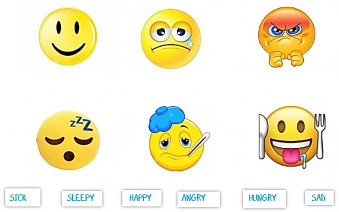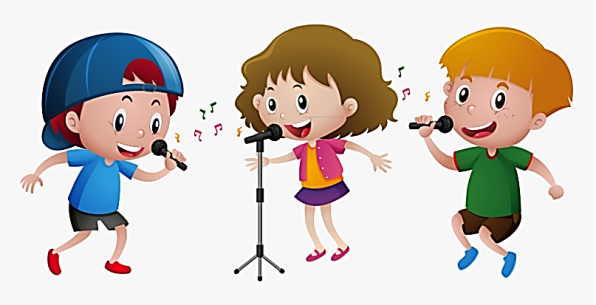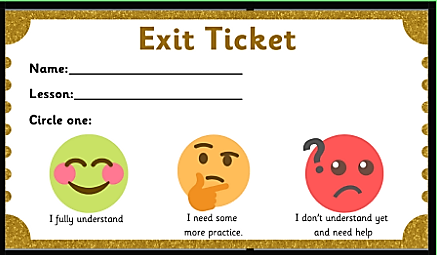
Shortterm plan
School № ___
|
Term:2 Unit4 Lesson 13 |
The world around us. |
|
|
Teacher’s name: |
Bekbosynova A. |
|
|
Date: |
|
|
|
Grade:2 |
Number present: |
Number absent: |
|
Theme of the lesson: |
Places to go. Unit assessment 4. |
|
|
Learning objectives(s) that this lesson is contributing to |
2.1.6.1 understand some specific information in short, slow, carefully articulated talk on routine and familiar topics 2.1.9.1 recognise the spoken form of familiar words and expressions 2.2.1.1 make basic statements related to personal information, people and objects on familiar topicsand classroomroutines 2.3.4.1 begin to use with support a simple picture dictionary 2.5.4.1 use determiners a, an, the, some, any, this, these, that, those to identify things 2.3.6.1 understand with considerable and particularly visual support, some specific information in short, simple texts on familiar topics; 2.2.6.1 use short answers appropriately in short, basic exchanges and take turns when speaking with others in a limited range of short, basic exchanges. |
|
|
Lesson objectives |
By the end of the lesson the students will be able todentify more words for places. |
|
Lessonprocedure:
|
Stages of the lesson/ Time |
Teacher’s activity |
Student’s activity |
Assessment |
Resources/ materials |
|
Greeting. Organisationmoment. |
Teacher greets pupils and asks “How are you today?” to find out their mood at the beginning of the lesson. |
Childrens’ greetings.Then pupils choose one of the smiles they see on the slide, saying “I am happy/sad….etc.”
|
|
Student’s Book “Family and friends 2. Kazakhstan edition”.(OxfordUniversity Press) |
|
Warm up |
|
Pupils answer the teacher’s questions.
Pupils find out the meaning of new words and repeat them.
|
|
|
|
Main activities |
Ex.1 p.30.
Ex.2 p.30.
|
Pupils listen to the pronunciation of the new words, point to the pictures and repeat the words.
Pupils name the places at the pictures, trying to predict what the song is about.After that, children listen to the recording, following in their books. Further, sing the song.
|
Choose the word that describes what you hear
Picture description |
CD 42 CD 43 https://elt.oup.com/student/familyandfriends/level02/songs?cc=kz&selLanguage=en#tracktitle |
|
Physical training exercise |
A break for physical activity. Teacher plays the video with physical exercises. |
Pupils watch and do physical exercises. |
|
|
|
Main activities |
Ex.3 p.30.
Two children can come up to be the boy and his mum and do the following actions for each chorus: Places to go -walk Things to see - shade eyes as if looking Out and about, my mum and me - hold out arms towards each other The rest of the children do the following actions: И/e go to the bank - count money И/еgo to the park - mime sitting on a swing We go to the zoo-wave arm in front of face, like a trunk We go to the shops /Or a supermarket - take objects off a shelf We put our shopping /In a basket - put objects in a basket We go to the airport / We see some planes -hold out arms like wings We go to the station/Andsee some trains - move arms in a circular motion at sides to imitate train's wheels. |
Pupils sing the song and do the actions.
|
Song-based task |
CD 43 |
|
The end of the lesson |
Teacher asks pupils “How are you?” to find out their mood at the end of the lesson, compares it to the initial mood pupils had and makes conclusion how the lesson influenced students and why. Giving the homework. |
SS write their homework for the next lesson. |
Pupils evaluate themselves using evaluation lists.
|
|
жүктеу мүмкіндігіне ие боласыз
Бұл материал сайт қолданушысы жариялаған. Материалдың ішінде жазылған барлық ақпаратқа жауапкершілікті жариялаған қолданушы жауап береді. Ұстаз тілегі тек ақпаратты таратуға қолдау көрсетеді. Егер материал сіздің авторлық құқығыңызды бұзған болса немесе басқа да себептермен сайттан өшіру керек деп ойласаңыз осында жазыңыз
Places to go. Unit assessment 4.
Places to go. Unit assessment 4.
Shortterm plan
School № ___
|
Term:2 Unit4 Lesson 13 |
The world around us. |
|
|
Teacher’s name: |
Bekbosynova A. |
|
|
Date: |
|
|
|
Grade:2 |
Number present: |
Number absent: |
|
Theme of the lesson: |
Places to go. Unit assessment 4. |
|
|
Learning objectives(s) that this lesson is contributing to |
2.1.6.1 understand some specific information in short, slow, carefully articulated talk on routine and familiar topics 2.1.9.1 recognise the spoken form of familiar words and expressions 2.2.1.1 make basic statements related to personal information, people and objects on familiar topicsand classroomroutines 2.3.4.1 begin to use with support a simple picture dictionary 2.5.4.1 use determiners a, an, the, some, any, this, these, that, those to identify things 2.3.6.1 understand with considerable and particularly visual support, some specific information in short, simple texts on familiar topics; 2.2.6.1 use short answers appropriately in short, basic exchanges and take turns when speaking with others in a limited range of short, basic exchanges. |
|
|
Lesson objectives |
By the end of the lesson the students will be able todentify more words for places. |
|
Lessonprocedure:
|
Stages of the lesson/ Time |
Teacher’s activity |
Student’s activity |
Assessment |
Resources/ materials |
|
Greeting. Organisationmoment. |
Teacher greets pupils and asks “How are you today?” to find out their mood at the beginning of the lesson. |
Childrens’ greetings.Then pupils choose one of the smiles they see on the slide, saying “I am happy/sad….etc.”
|
|
Student’s Book “Family and friends 2. Kazakhstan edition”.(OxfordUniversity Press) |
|
Warm up |
|
Pupils answer the teacher’s questions.
Pupils find out the meaning of new words and repeat them.
|
|
|
|
Main activities |
Ex.1 p.30.
Ex.2 p.30.
|
Pupils listen to the pronunciation of the new words, point to the pictures and repeat the words.
Pupils name the places at the pictures, trying to predict what the song is about.After that, children listen to the recording, following in their books. Further, sing the song.
|
Choose the word that describes what you hear
Picture description |
CD 42 CD 43 https://elt.oup.com/student/familyandfriends/level02/songs?cc=kz&selLanguage=en#tracktitle |
|
Physical training exercise |
A break for physical activity. Teacher plays the video with physical exercises. |
Pupils watch and do physical exercises. |
|
|
|
Main activities |
Ex.3 p.30.
Two children can come up to be the boy and his mum and do the following actions for each chorus: Places to go -walk Things to see - shade eyes as if looking Out and about, my mum and me - hold out arms towards each other The rest of the children do the following actions: И/e go to the bank - count money И/еgo to the park - mime sitting on a swing We go to the zoo-wave arm in front of face, like a trunk We go to the shops /Or a supermarket - take objects off a shelf We put our shopping /In a basket - put objects in a basket We go to the airport / We see some planes -hold out arms like wings We go to the station/Andsee some trains - move arms in a circular motion at sides to imitate train's wheels. |
Pupils sing the song and do the actions.
|
Song-based task |
CD 43 |
|
The end of the lesson |
Teacher asks pupils “How are you?” to find out their mood at the end of the lesson, compares it to the initial mood pupils had and makes conclusion how the lesson influenced students and why. Giving the homework. |
SS write their homework for the next lesson. |
Pupils evaluate themselves using evaluation lists.
|
|

шағым қалдыра аласыз



















